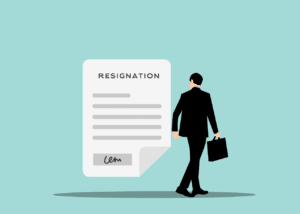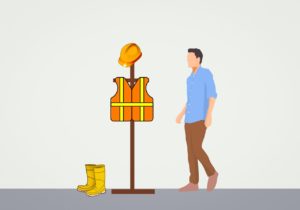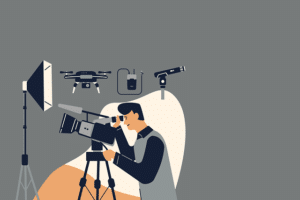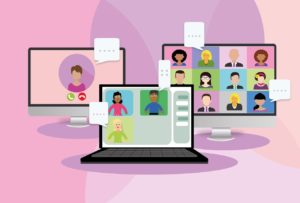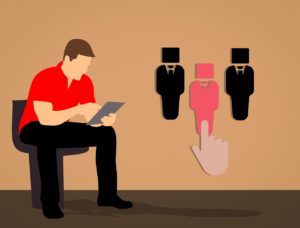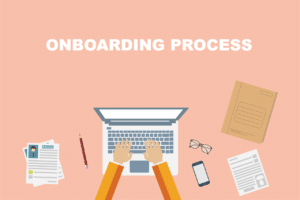Being a career changer will bring more benefits to your life than staying in a career you hate. You will be able to choose to do something that you love, or that brings you more flexibility to your life. You are not alone in this either; 49 percent of people said they’d made dramatic career changes in their life. So, here is how you can have the career of your dreams.
Identify Your Dream Career
Identifying your dream career is the first step after realizing you don’t like your current one and want to make a change. You may already think you know which job you want, but you have to consider many aspects.
For example, I may want to be an AI scientist, but I don’t really know what it actually is like to work as one. Maybe when I look into it, I won’t like it anymore. So you can ask yourself a couple of questions:
- What lifestyle do you want to have?
- Does money matter much?
- Or do you prefer to have a career with a purpose?
These questions will help you paint a clearer picture of where do you want to go. Your profession will be a big part of your life, so you have to decide what you want to get out of it that you aren’t getting from your current career.
If you want a flexible lifestyle with more time for traveling, you could choose a remote career. Or if you care more about the money, you could get into a career with a high salary like programming. The point is to identify what your primary reason will be that will make any negative aspect of your next job worth the trouble.
Research
After some soulsearching and identifying what you think you want to do, you should start your research. You have to make sure the career is what you precisely need before you embark on what could possibly be the most important change in your life.
For example, you have to know the average salary, what qualifications you need, what is the job outlook for the next ten years, and how many job openings are available. Then, you have to research what it is like to work in those professions.
To discover the truth, you have many options. One can be to reach out to people on job boards like LinkedIn that have that profession and set up interviews with them. You can meet for half an hour about how is the work-life balance in that career, if it is fulfilling, or any other question you may have.
Another option is to do shadow jobs. You can arrange to shadow a person at their position for a few hours and see for yourself how it’s like. It depends on how much effort and time you can put into this research. Many companies have “a day in the life” videos on their websites where, for example, a software engineer will talk about what it’s like to be one in that company.
Prepare the Resignation Letter
One of the main worries of being a career changer is that you will lose the years of experience you accumulated in your current career. But the truth is that you can use that experience to your advantage. You will be able to transfer some of the skills you learned and use your past employers as references.
It always helps to end your current job on a good note so that you can ask for a recommendation letter later. How can you do this? Well, you should write the perfect resignation letter where you explain your motives to your employer. You can explain why you decide to quit, that it is not about the company but a personal decision.
You can also write about how grateful you are of the opportunity they gave you an offer to help with your replacement. You don’t have to quit your job right away; in fact, it is better if you do it when you already have a new job waiting. But, you may have to do it if you have to enroll in full-time education for your new career. Just have the letter ready in any case.
Get the Education
After deciding what you want your new career to be, you must decide how you will acquire the needed skills. Depending on the profession, you may only need to do a couple of courses or enroll in university to get a bachelor’s degree.
If you can choose, you should consider the time and money you have available. For example, if you are around forty and changing careers, you may consider the fastest option to start looking for a job. You will already have your age as a disadvantage, so you don’t want to drag it up another four years.
Plus, if you have a tight budget, spending four years at university again may be the last thing on your mind. You could enroll in an online course, professional certification, or coding bootcamp depending on the career. These last less time, as short as a few months, and are more affordable.
Prepare your Resume
At this point, you can start to prepare your resume. This is different than when you prepare your resume for your past career. This time you are a career changer, which can have its advantages. You can stand out from other entry-level applicants because you have previous experience in the corporate world, even if you are new in this career.
So, you have to create a resume that highlights your skills, and it’s centered around what you can offer the company. You can create a section where you describe what you contributed to your previous positions instead of the name of the role, which probably doesn’t mean much in your new career.
In Summary
Changing a career is a big decision to take, so you should take every step to make it correctly. Make sure you know what your dream career is, research until you know everything about it, prepare to quit your current job, get the education, and prepare your resume. These will help your transition go smoothly, and you may have a new job by next year.
Maria Elena Gonzalez is a broadcast journalist and has been working as a tech writer for almost three years. During this time, her work has been published by companies like TechAccute, Trip University, and Entrepreneur.



